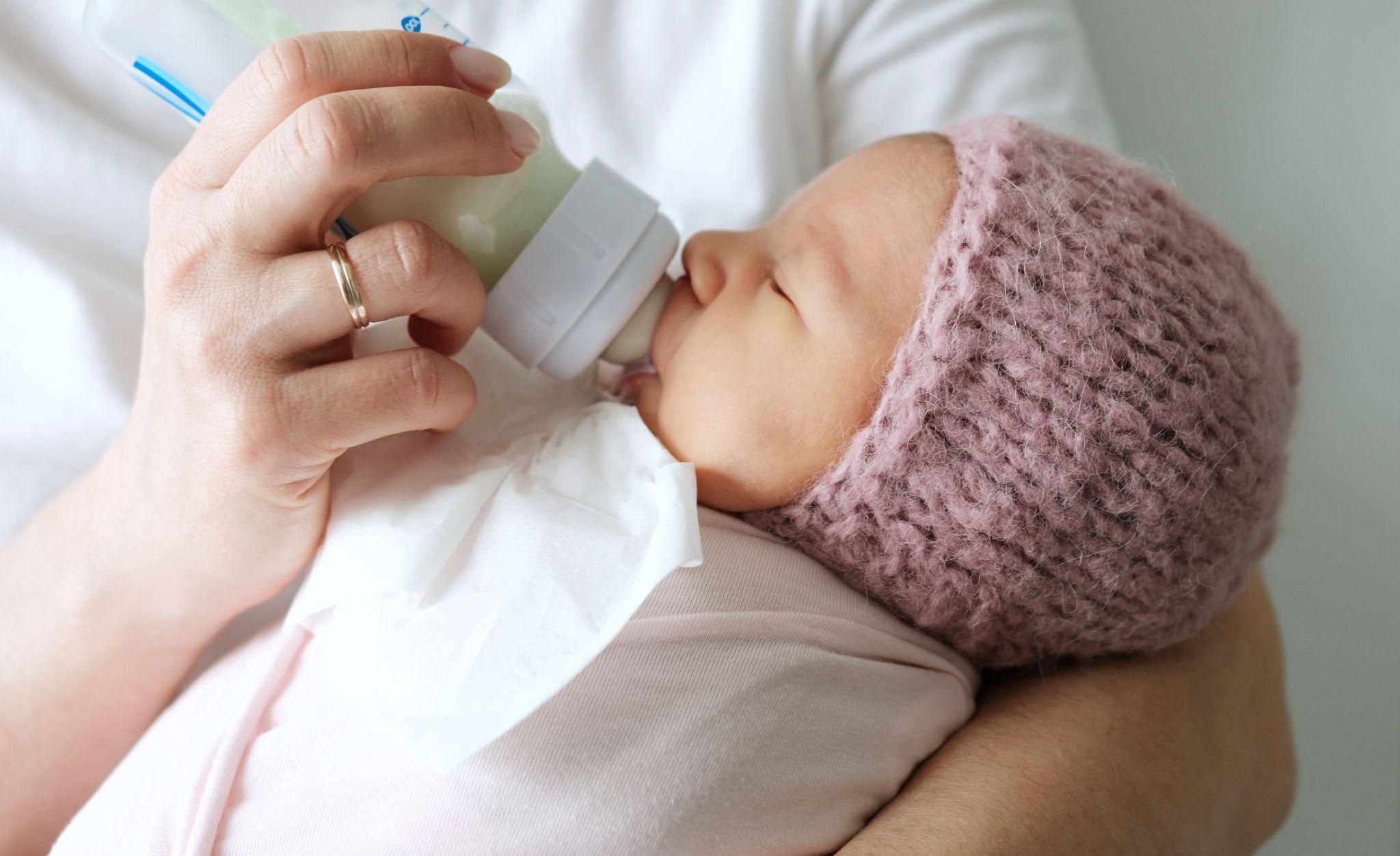Antenatal colostrum, often known as the “first milk,” is one of nature’s most powerful tools for building a newborn’s immune system. Colostrum is the nutrient-rich milk produced by the breasts during late pregnancy and in the first few days after birth. It’s packed with essential antibodies, proteins, and growth factors that provide immune and digestive support to newborns, making it an invaluable first source of nutrition. Many expectant mothers are choosing to learn about antenatal colostrum harvesting to ensure that their babies receive these immune-boosting benefits from the moment they are born.
In this article, we’ll explore the importance of antenatal colostrum, how it supports a baby’s immune system, the best ways to express and store it, and why discussing colostrum harvesting should be a part of every expectant mother’s antenatal care plan.
What is Antenatal Colostrum?
Colostrum is the first milk produced by the mammary glands, often beginning in the third trimester. Unlike mature breast milk, which is thinner and white, colostrum is thicker, yellowish, and packed with antibodies and nutrients that protect and nourish the newborn. Colostrum is sometimes referred to as “liquid gold” because of its high nutritional density, which makes even small amounts highly beneficial for a newborn.
For mothers, the process of expressing colostrum before birth, known as antenatal colostrum harvesting, allows them to store a small supply that can be used immediately after birth. This is especially helpful for mothers facing specific health concerns or those wanting to ensure their baby receives colostrum immediately.
Why is Antenatal Colostrum So Important for the Baby’s Immune System?
Newborns are born with underdeveloped immune systems, which means they are particularly vulnerable to infections and illness in the first days and weeks of life. Colostrum is rich in immune-boosting components, such as Immunoglobulin A (IgA), white blood cells, and lactoferrin, all of which help protect the baby against infections.
Key Benefits of Colostrum for Immune Support
High Concentration of Antibodies: Colostrum is packed with antibodies, especially IgA, which forms a protective coating on the baby’s gut lining, respiratory tract, and throat. This protection is crucial as it helps block harmful pathogens from entering the baby’s system.
White Blood Cells for Defence: Colostrum contains a high concentration of white blood cells, which play a vital role in fighting infections and strengthening the baby’s immune response.
Lactoferrin for Antibacterial and Antiviral Support: Lactoferrin is a protein found in colostrum that binds to iron, depriving harmful bacteria of the nutrients they need to grow. It also has antiviral properties, providing additional protection to the newborn.
Support for Digestive Health: Colostrum has natural laxative properties that help newborns pass their first stool, called meconium. This process also helps clear bilirubin from the body, reducing the risk of jaundice, and creates a healthy environment in the baby’s gut to foster beneficial bacteria.
Benefits of Antenatal Colostrum Harvesting for Mothers
Antenatal colostrum harvesting offers several benefits for mothers as well. Collecting colostrum before birth can provide reassurance and practical support, especially for mothers with high-risk pregnancies or those planning for a C-section. Knowing that a supply of colostrum is ready can be comforting and allows mothers to feel more prepared for their baby’s early days.
Confidence in Breastfeeding
Practising colostrum expression also gives mothers the chance to become familiar with hand expression techniques, which is helpful for breastfeeding after birth. Getting comfortable with expressing colostrum can ease the transition to breastfeeding and make mothers feel more confident in their ability to nourish their newborn.
Peace of Mind for High-Risk Situations
For mothers with certain health conditions, such as diabetes, or those expecting multiples, having colostrum ready for immediate use can be reassuring. Babies born to diabetic mothers, for example, may experience low blood sugar, and colostrum can help stabilise their glucose levels.
When to Start Expressing Antenatal Colostrum
It’s typically recommended to begin antenatal colostrum expression around 36 weeks of pregnancy. Starting at this time allows you to build a small supply without risking early labour. However, it’s essential to discuss your plans with your healthcare provider during your antenatal appointments to ensure that colostrum harvesting is safe for you.
How to Express Antenatal Colostrum: Step-by-Step Guide
Hand expression is the preferred method for collecting colostrum, as it’s gentle and effective. Here’s a guide to help you get started.
Step 1: Prepare Your Supplies
You’ll need clean, sterile syringes or small containers for storing the expressed colostrum. Some antenatal clinics provide these supplies, so check with your provider if needed.
Step 2: Create a Relaxing Environment
Find a quiet, comfortable space. Many mothers find that relaxation techniques, such as those practised in antenatal yoga or breathing exercises, can help them feel calm and improve milk flow.
Step 3: Warm and Massage the Breast
Warming the breast with a warm compress or gentle massage helps stimulate colostrum flow. A gentle breast massage is also beneficial for encouraging let-down, making expression easier.
Step 4: Begin Hand Expression
Position Your Fingers: Place your fingers in a “C” shape around the areola (the darker area around the nipple).
Press and Compress: Gently press back towards your chest, then compress towards the nipple in a rhythmic motion. Repeat this process to express colostrum.
Collect in a Sterile Container: Colostrum may appear in small drops initially. Collect these in your syringe or container. Don’t worry if only a few drops are produced—colostrum is highly concentrated and effective even in small amounts.
Step 5: Store Colostrum Safely
Refrigeration: Freshly expressed colostrum can be stored in the refrigerator for up to 48 hours.
Freezing: For longer storage, freeze colostrum in a sterile container or syringe. Label each with the date and freeze for up to six months.
Tips for a Positive Colostrum Collection Experience
Relax and Take Your Time
Expressing colostrum should be a calm, gentle process. If you feel stressed or rushed, consider taking a break or practising relaxation techniques like those taught in pregnancy yoga classes.
Don’t Worry About Quantity
Colostrum is produced in small amounts, which is normal. Even a few millilitres provide significant health benefits, so there’s no need to stress about collecting large volumes.
Use this Opportunity for Breastfeeding Practice
Hand-expressing colostrum before birth is an excellent opportunity to get familiar with your body’s natural breastfeeding process. Becoming comfortable with expression can make the transition to breastfeeding smoother after birth, helping you feel more prepared.
Additional Benefits of Antenatal Colostrum Harvesting
Immediate Nutritional Support for Baby
In cases where breastfeeding might be delayed—such as during a C-section or other medical interventions—having colostrum stored provides immediate nourishment to your baby, ensuring they receive critical immune and digestive support.
Reassurance for First-Time Moms
First-time mothers often find that colostrum expression offers peace of mind. Knowing they have an early supply ready can ease concerns about breastfeeding, especially in the first few days when breastfeeding routines are being established.
Dispelling Common Myths About Colostrum Collection
Myth: Expressing Colostrum Will Induce Labour
Fact: While nipple stimulation can sometimes cause mild contractions, colostrum harvesting is generally safe if started at 36 weeks and done gently. Always consult with your healthcare provider to ensure it’s safe for you.
Myth: Colostrum Isn’t Produced Until After Birth
Fact: Colostrum is produced during pregnancy, often from the second trimester, and is available for collection during the third trimester. Many mothers can express colostrum safely before birth with guidance from their healthcare provider.
Myth: Only Mothers with Health Concerns Should Collect Colostrum
Fact: Colostrum harvesting can benefit any mother wanting to prepare for her baby’s early days, whether for health concerns or simply as a proactive step in prenatal care.
Including Colostrum Harvesting in Your Antenatal Care Plan
Adding colostrum collection to your antenatal care plan can be a proactive way to support your baby’s health from the beginning. Discussing colostrum harvesting with your healthcare provider during antenatal checkups and antenatal education sessions allows you to approach it with confidence and knowledge.
Attending antenatal classes can also provide practical guidance on colostrum expression and storage. Many classes cover the basics of breastfeeding and newborn care, helping you feel more prepared for the early days of motherhood.
Antenatal colostrum harvesting is a valuable practice that offers significant immune-boosting benefits for newborns. Colostrum provides essential protection for a baby’s digestive and respiratory systems, stabilises blood sugar, and helps clear bilirubin, supporting overall health. For mothers, antenatal colostrum expression provides practical breastfeeding practice and peace of mind, especially if there are specific health concerns or a planned C-section.
Discussing colostrum harvesting as part of your antenatal care plan ensures you have the right support and information to begin safely. Including this practice can give your baby a strong start, building their immune system and supporting their health from the very first days of life.
References
- The Ultimate Antenatal Classes
Prepare for labour, birth, and baby care with nine experts, including senior NHS midwives and an award-winning obstetrician!
https://unii.com/en/journey/ultimate-antenatal-classes









